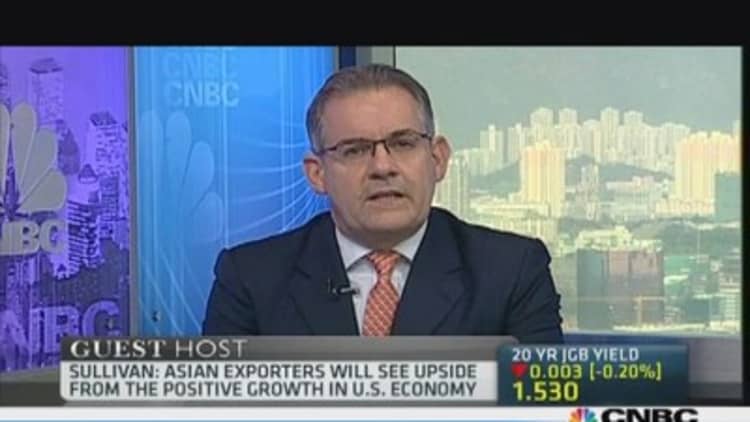China's money market rates are heading higher once again, hitting their highest level on Thursday since a cash crunch in June that sent jitters through global markets.
The difference between now and six months ago is that China's central bank has indicated that it would like to see higher lending rates to help contain high credit growth, say analysts, adding that a repeat of the panic that surfaced in June when rates spiked is unlikely.
China's benchmark seven-day bond repurchase rate rose to as high as 8.5 percent, its highest level since late June. One-year interest-rate swaps, that reflect liquidity conditions, rose to a peak of about 4.99 percent, also the highest since June.
(Read more: China cash rates jump on liquidity worries)
It's the second straight day that rates have risen sharply. The central bank refrained from injecting new funds during open market operations on Thursday and has not conducted such operations for the past five sessions.
"There are two key factors guiding this process," said Louis Kuijs, China economist at RBS in Hong Kong.
(Read more: China's shares maybe cheap, but they could get cheaper)
"At the forefront is a tighter monetary policy stance that we see being conducted in the money markets to rein in credit growth," he said. "In the background is a shift in the way that monetary policy is being conducted and what that means for interest rates. These two factors are driving money market rates and will be with us next year also."
In June, a surge in Chinese money market rates took global markets by surprise and fueled fears of a credit crunch in the world's number two economy.
At that time the central bank held back from injecting new funds into the market – something that many analysts interpreted as a warning to local lenders to rein in their lending growth.
(Read more: China faces off with markets as money rates soar)

"In June, it appeared as if the central bank suddenly decided it was not happy with what banks were doing so the move in money market rates was disruptive," said Kuijs. "The market moves are a lot smoother this time around."
Higher rates the new norm?
Analysts said that new short-term debt instruments as part of measures to liberalize Chinese financial markets also implied higher money market rates ahead.
(Read more: China's new home prices rise at fresh record pace)
"Banks are now allowed to trade negotiable certificate deposits, based off shibor," said Chris Weston, chief market strategist at trading firm IG Markets, referring to the Shanghai Interbank Offered Rate.
"These short-term debt instruments are going to be more market dictated and the ultimate situation is that it will lead to higher short-term money market rates," he added. "Ultimately this is about liberalization, and when you get that you will have higher rates so no one is too concerned."
Kuijis at RBS said there could be some concern in Beijing if high interest rates encourage inflows of foreign cash into China.
"Money market rates in China are now higher than in many parts of the world, so they [the central bank] need to watch out on that front otherwise China will draw in more money from abroad," he said.
— By CNBC.Com's Dhara Ranasinghe; Follow her on Twitter @DharaCNBC


